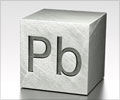Unlicensed ayurvedic herbal remedies containing dangerously high levels of heavy metals have raised reasons for concern among the consumers in UK following which a health advice has been issued to avoid consumption of six brands of ayurvedic herbal products.
The products banned for consumption in the UK market include: Karela tables (made by Shriji Herbal Products); Karela capsules (Himalaya Drug Co); Yograi Guggal and Sudarshan tablets (both Zandu Pharmaceuticals); Shilajit capsules (Darbur India); SAFI liquid (Hamdard-WAKF); and Maha Sudarshan Churna Powder (supplied by Zandu Pharmaceuticals, D&K Pharmacy, Chhatrisha and Dabur India).Traditional Ayurvedic medicines, which have been used in India for around 2000 years, may contain herbal ingredients that are processed using heavy metals such as mercury, lead and arsenic. While small amounts may possess therapeutic properties and cause no ill effect, higher doses may be associated with toxicity.
Heavy metals can accumulate in the vital organs, and children are the most at risk from their toxic effects. It is important to recognize symptoms of heavy metal poisoning so that appropriate treatment can be instituted.
Arsenic poisoning could manifest as nausea, abdominal pain, vomiting, muscle cramps, heart abnormalities, liver damage, anaemia and reduced motor nerve function while lead poisoning can cause weight loss, insomnia, dizziness, swelling of the brain and paralysis. Mercury poisoning could be associated with tremors, insomnia, memory loss, slowed sensory and motor nerve function, and reduced mental function.
This is not the first time that there has been concern over the safety of ayurvedic products in the UK. The concern over heavy metal content first surfaced in December 2004 with the publication of an article in the Journal of the American Medical Association, which found that 14 Ayurvedic products sold in the Boston area of the United States contained potentially harmful levels of heavy metals.
Unlicensed herbal remedies may be made up and supplied to an individual patient following a one-to-one consultation with a practitioner. A number of safety concerns have arisen as a result of the lacunae in the public health protection policies. Last month the American Herbal Products Association in the US made it a condition of membership that companies keep heavy metal levels in supplement products within safe limits.
Advertisement










